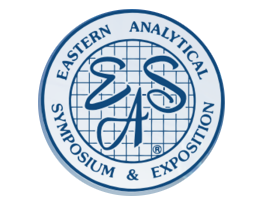
University of New Castle
Marcel Maeder was born 1951 Basel, Switzerland. He received a Diploma in Chemistry, from the University of Basel, Switzerland in 1975. In 1980 he received his Ph.D. with Prof. Silvio Fallab at the University of Basel (summa cum laude), Kinetics of the interactions of Co(II) complexes with molecular oxygen. Then in 1988 he received Habilitation from the University of Basel in Chemometrics, EFA.
During his professional career he held teaching positions at the University of Basel, was a Post-doctoral Research Fellow at the Research School of Chemistry at the Australian National University and was appointed to the University of Newcastle, Australia in 1988.
Dr. Maeder’s research is quantified by 160 publications in peer reviewed scientific journals, 8 book chapters, 1 monograph on data analysis, numerous research seminars and conference attendances with many plenary and section presentations, H-index of 33, some 5000 citations.
Dr. Maeder made several important contributions in chemometrics. Undoubtedly, the most important is Evolving Factor Analysis or EFA. EFA is well recognised as a standard and as a fundamentally important algorithm of preliminary data analysis and has been used in a large number of applications. Maeder also published the first paper in a chemistry journal on the algorithm now known as Alternating Least Squares, ALS. More recent developments are concentrated on hard-modelling methods which resulted in commercially successful and widely used packages: SPECFIT (no longer supported) and ReactLab Equilibrium, ReactLab Kinetics and ReactLab KinSim (Marcel is founder and co-director of Jplus consulting, a software company dedicated to the development of data analysis software for kinetic and equilibrium studies. Hard-modelling algorithms have been further developed to allow the analysis of industrial processes where parameters like pH, ionic strength or temperature cannot be kept constant. Recent developments for model-free analyses include methods like Resolving Factor Analysis and the investigation of rotational ambiguity. Image Analysis is an interesting field of applications for the above methods.
While chemometrics continues to be a central research interest, Marcel Maeder is a very versatile chemist with some 80 publications in the field of coordination chemistry where the research concentrates on equilibrium and kinetic investigations of transition metal complexes in aqueous solution. Recently Marcel generalised the research into generalised Lewis Acid-Base reactions, in particular the chemistry of CO2 is aqueous solution with the aim of improving the understanding and subsequently the efficiency of Post Combustion Capture of CO2 in power plants (some 20 publications). The hard-modelling experience proved most important in all this research.
Dr. Maeder is also a versatile teacher; his teaching involves general chemistry, inorganic chemistry, analytical chemistry, physical chemistry, environmental chemistry and, of course, chemometrics at all levels. Some 25 honors and 22 Ph.D. projects have been undertaken under the supervision and co-supervision of Dr. Maeder. He has given several post-graduate courses in chemometrics at overseas Universities (Thailand, Brazil), including prestigious EU Erasmus Mundus scholarships with courses delivered in Gdansk, Poland, Barcelona and Cádiz, Spain.
Marcel is a member of the Editorial Board of the Journal of Chemometrics since 2003. He is a very active reviewer with over 100 publication reviews; he was Reviewer of the Year in 2008 for Analytica Chimica Acta.
Marcel Maeder was always adamant to heed the wisdom of the late Professor Jean Thomas Clerc, former editor of the Chemometrics Section of Analytica Chimica Acta:
“ Never … ever … under no circumstances … use chemometrics to make up for poor experimentation. ”
